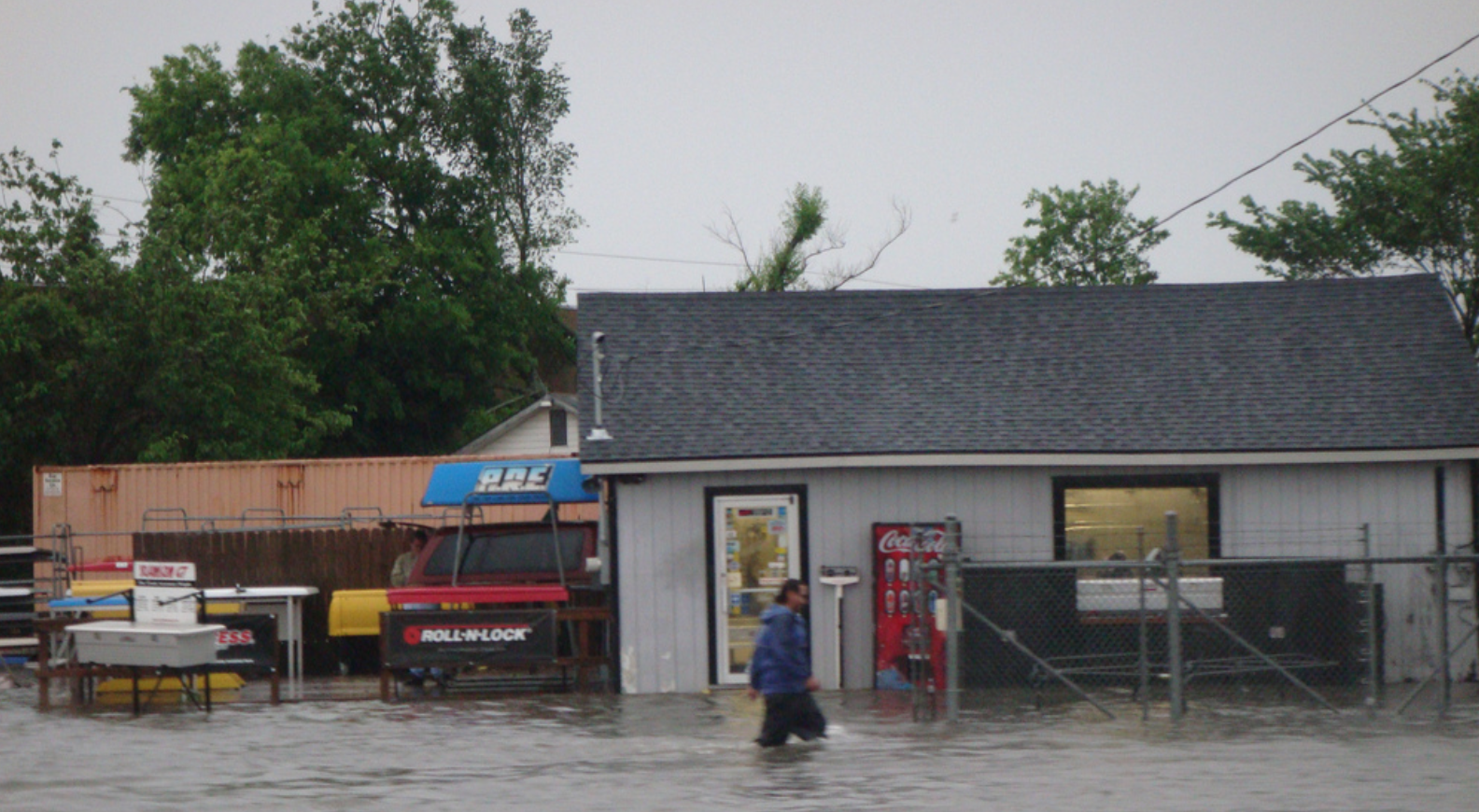With $2.5 billion in flood mitigation projects, buyouts, studies and more that would cover the next 10 to 15 years on the ballot Saturday, the Harris County Flood Control District could see its funding jump significantly. As a comparison, the district's capital improvement budget for the 2017-2018 fiscal year was $60 million. And in a region that's seen several large flood events in recent years, that funding is an important step, according to Kinder Institute Director Bill Fulton, but the bond program alone won't be enough to get Houston where it needs to be.
"We have to build many of these engineering projects and that’s why the flood bond is necessary," said Fulton to the crowd gathered at Congregation Emanu El Wednesday. "But we have to think about the people and the community and the neighborhoods and what these neighborhoods look like when we reshape them."
With recovery funding flowing to the county and city housing departments, the potential flood control bond and other sources aimed at rebuilding and improving the region's resiliency, Houston has an opportunity to shift what was a traditional engineering focus that built a city of highways and concretized bayous to an approach that works with the water, rather than against it, and that prioritizes community cohesion.
"The places where it flooded the most were not the same places where you got the most rainfall," said Fulton. "There is an interaction between the way we have built the city and the flood risk and that’s one thing we have to deal with.”
But Hurricane Harvey brought attention not just to how the city manages floodwater but to how it functions on a day to day basis more generally.
The flood bond would go a long way toward implementing engineering solutions, many of which were on the drawing table before Harvey, but, Fulton insisted, they must be coupled with strategies that look to slow the flow of water, rather than channel it quickly to and through the bayous. Furthermore, new regulations should also be put to work to undo the development practices that have worsened and shaped the region's flooding in many ways.
"You’ve got to have traditional engineering solutions, you’ve got to have green infrastructure…and you've got to have regulations that keep people out of harm's way," said Fulton.
There seems to be some support for all of these. Though turnout has been lower than expected for the bond election, earlier polling suggested likely voters would support it. Meanwhile, the Houston Parks Board's Beyond the Bayous plan seeks to extend the greening project in a system of trails that would further connect the waterways with neighborhoods. And the City of Houston approved development regulations for new development aimed at reducing flood risk.
The tougher part, then, will be coordinating the various agencies and departments tasked with helping the region rebuild better than it was before. Ideally, housing dollars would work in conjunction with proposed flood control projects to be sure detention ponds, for example, aren't cutting off neighborhoods from community resources. Also, buyouts should be undertaken in a thoughtful way that empowers, not disrupts, communities. "The worst thing we could do is buyout scattershot lots…checkerboarding pieces of property," explained Fulton.
Connecting recovery funding to existing projects, like the state department of transportation's I-45 North Houston Highway makeover or Metro's developing long-term plan.
"These issues are really not about flooding," said Fulton. "They're about city building.”
This post has been updated to correct the name of the organization responsible for the Beyond the Bayous plan.

